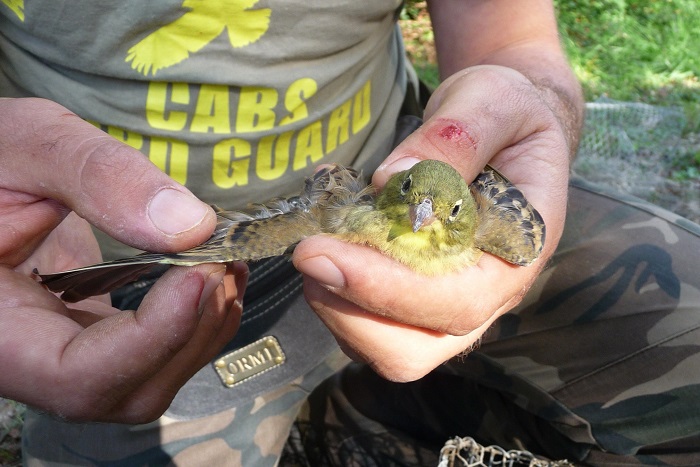Successes in France

The protection of nature, wildlife and the environment is still in its infancy in France. Since the French Revolution, hunting has been regarded as a civil right and has a lot of support in the general population. The successes for bird protection are not comparable to those in Italy, Germany or Malta - not yet! Nevertheless, there are good things to report:
- The trapping of lapwing and golden plover with clap nets in Champagne is approaching its foreseeable end. Following a CABS campaign against bird killing in the mid-1990s, the authorities decided not to issue any new trapping permits. The "tradition" will die out with the last bird trapper.
- After a successful protest action by CABS and other nature conservation associations, France banned Ortolan trapping at the end of the 1990s.
- After an environmental complaint from CABS against stone-crush traps in the Central Massif, which were only permitted in 2005, the forestry administration started in 2009 to intensively control the trapping sites and to penalise infringements of the derogation regulations. Some site inspections are carried out together with CABS members.
- CABS research into bird-trapping with limesticks in Provence has led to a considerable understanding of the reality of the situation. Extensive dossiers on the two topics have been submitted to the EU Commission - the pressure on France is growing noticeably as a result.
- After years of tolerance towards Ortolan trapping by the authorities in southwest France, the police and forestry administration are finally taking action against poaching. It was not until CABS bird protection camps built up the decisive pressure. Now the catch of the threatened species has significantly decreased.






